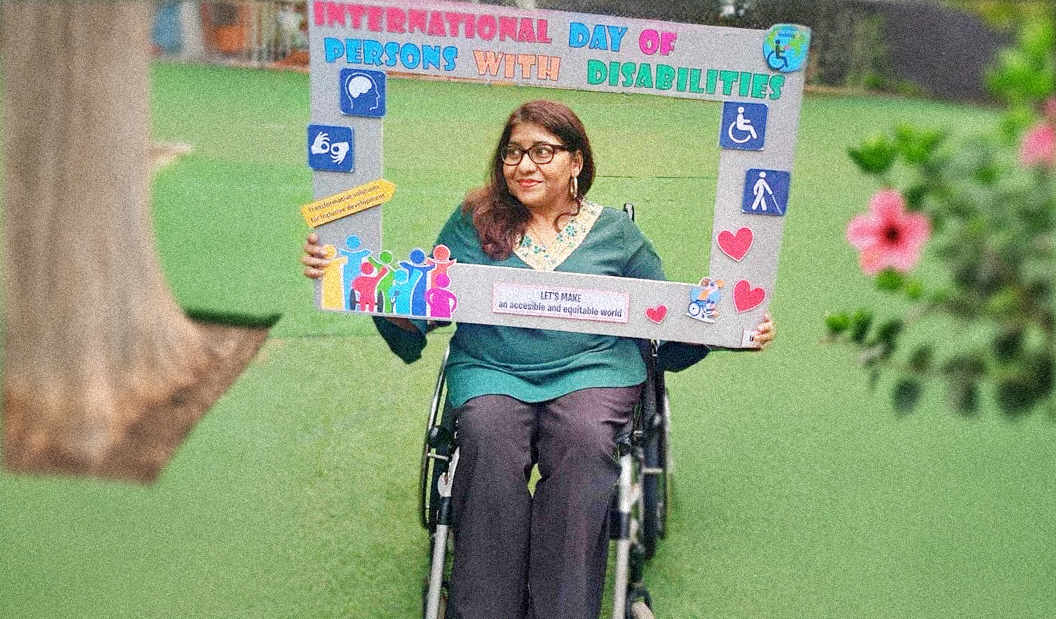The motto “Nothing About Us Without Us” relies on the principle of participation, and it has been used by Disabled Peoples Organizations throughout the years as part of the global movement to achieve full participation and equalization of opportunities for, by, and with persons with disabilities. This slogan had been used centuries ago by various marginalized groups to achieve political, social, and economic opportunities.
International Day of Persons with Disabilities (December 3) is an international observance promoted by the United Nations since 1992, though it was originally known as “International Day of Disabled Person” until 2007. The most popular theme was used by the United Nations in 2004.
Maldives signed the Convention on the Rights of Persons with Disabilities (CRPD) on October 2, 2007, and ratified it on April 5, 2010. The Disability Act of Maldives was ratified in August 2010. In 2015, Maldives adopted the 2030 Sustainable Development Goals (SDGs), establishing a framework to achieve 17 goals targeting poverty alleviation, improved livelihoods, and equal opportunities for the most vulnerable.
This is the officially committed international and national level legislative history that has been ratified, signed, and documented. It is well-noted and mandated for the government of Maldives, not just for policy-making or funding purposes, but for implementation.
At national, regional, and international levels, discussions have taken place with various local NGOs dedicating their tireless efforts and documentation. Issues related to ‘accessibility’ have been discussed at multiple platforms, regarding whether a person’s disability is physical, mental, cognitive, developmental, intellectual, sensory, or multiple factors.
Having lived and grown up in Male’, the capital of Maldives, it is distressing to say nothing much has improved. With the current chaotic congestion and living situation in Male’, life has become more challenging for disabled persons and doubly challenging and insecure for women in certain situations. That said, island life is not neglected. An inclusive environment enables privileged living not only for the disabled community but also gives the elderly community the opportunity to live a healthier life.
What respect does our community devote to the disabled? This question always triggers my mind. It is said that they do not have to wait in long queues, priority will be given on public transport, and sadly, very few might ask, “Do you need any help or assistance?” Roads are like death traps with riders speeding; there are times with patrolling, otherwise you just have to risk crossing the road. Life is like a roller coaster, especially if you think of going out from home.
How much do we think about implementing universal accessibility, which means everyone should have equal access to services, space, and more to live, regardless of their disability? Until today, we rarely see physical work being done in our communities. How much emphasis has been given to providing slopes on pavements, ramps in buildings (especially public places), wide doors, voice-activated smart elevators and traffic lights, and tactile pathways? These should have been installed at least for basic services. Lack of accessible public buildings and housing will definitely be a struggle for people with disabilities.
Is there a watchdog? In providing services or infrastructure development, inclusion needs to be addressed. This may be neglected not because of ignorance but could be due to regulatory authorities not being responsibly attentive to these matters.
NGOs and CBOs spend time discussing and working on the SDGs 2030 roadmap. Crosscutting issues include Goal 4 (Education), Goal 10 (Inequality), and Goal 11 (Accessibility of human settlement), just to mention a few. Practically, how much emphasis is given to implementing such policies by the government is a question that needs to be asked. Just because of your disability, you should not be excluded or refrained from education, employment, or other privileges of life. Maldives needs to do better to achieve these targets that are not too far ahead by the agreed timeline.
Much has to be done in public awareness, and my key word is EMPOWERMENT. Disabled people need to be empowered by their families and the people around them. As a nation, it is our responsibility to establish the agreed policies and commitments. We need to be heard louder than now.
Courage and willpower have been my driving energy not to give up and to try to reach my maximum potential. Being a disabled person in a wheelchair does not stop me from doing anything as long as it is free from barriers. Sometimes I wonder how I managed to complete my schooling at Aminiya School. Unlike today, the situation was far behind; never heard of such things as ‘accessibility’ or ‘inclusive environment.’ Most areas in school had steps, even to the library, laboratory, and most classrooms. Undoubtedly, it was my parents’ wish and courage to nurture me the same as any other child, to send me to school, and to integrate me with other children beyond family. Heartiest appreciation goes to the wonderful mates who shared this bittersweet journey with me. I’m glad to think back that I never remember a day when I didn’t enjoy school, including nursery, yet sad that I never got an opportunity to play sports or enjoy other extra-curricular activities.
Schooling was not enough for me; just in the midst of my job in civil service, I thought I had to be more educated to be a better person than who I was and decided to study abroad in Australia, knowing it would be a more appropriate country for a person in a wheelchair to live. There, I learned and experienced a lot to navigate my life.
Be resilient – you just have to fight for your rights to make a better place for future generations! Yes – “Nothing About Us Without Us”
References:
https://statisticsmaldives.gov.mv/nbs/wp-content/uploads/2020/10/MALDIVES-SDG-Data-Updates-2020.pdf
https://statisticsmaldives.gov.mv/nbs/wp-content/uploads/2020/10/MALDIVES-SDG-Data-Updates-2020.pdf
https://www.undp.org/maldives/sustainable-development-goals
Nothing About Us Without Us — Disability Oppression and Empowerment, James I. Charlton, University of California Press, 1998

Leave a Reply